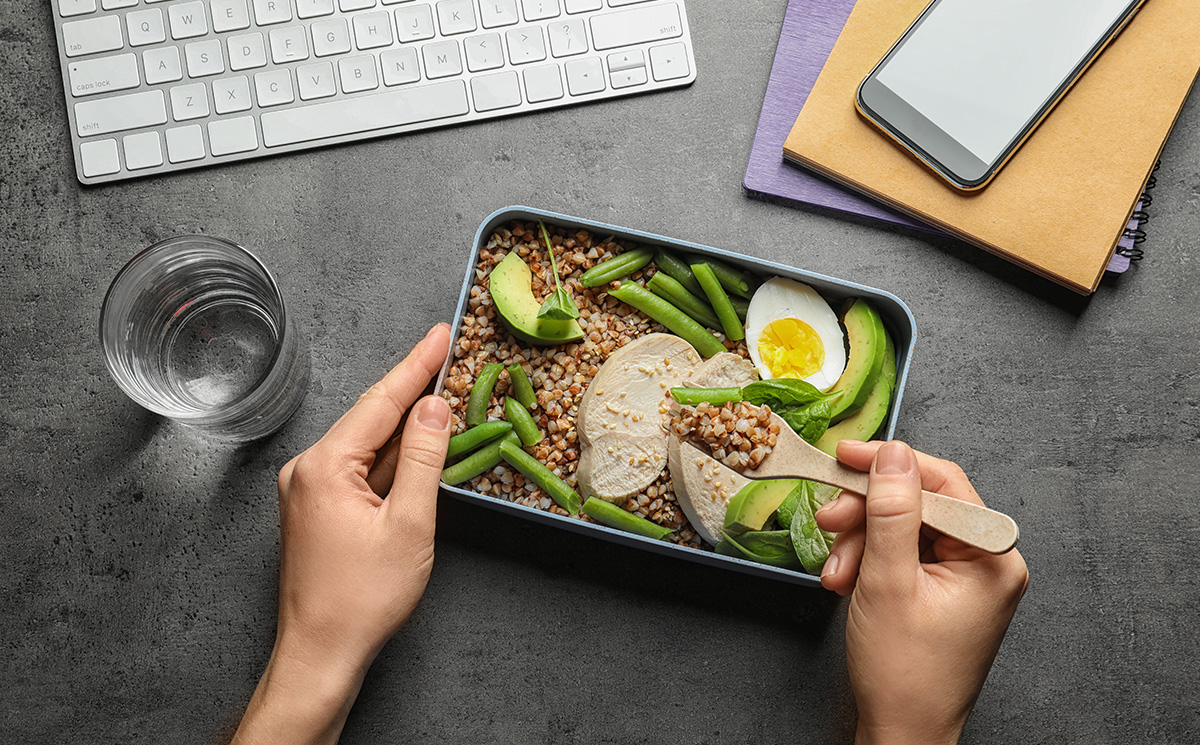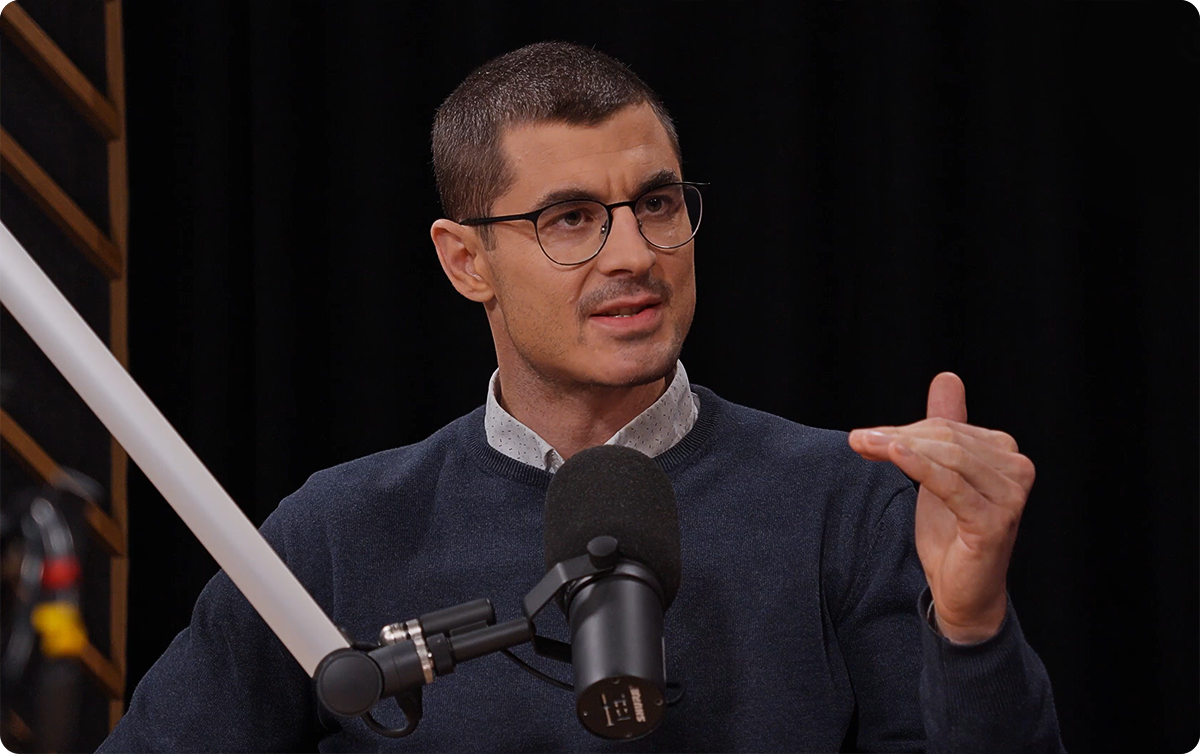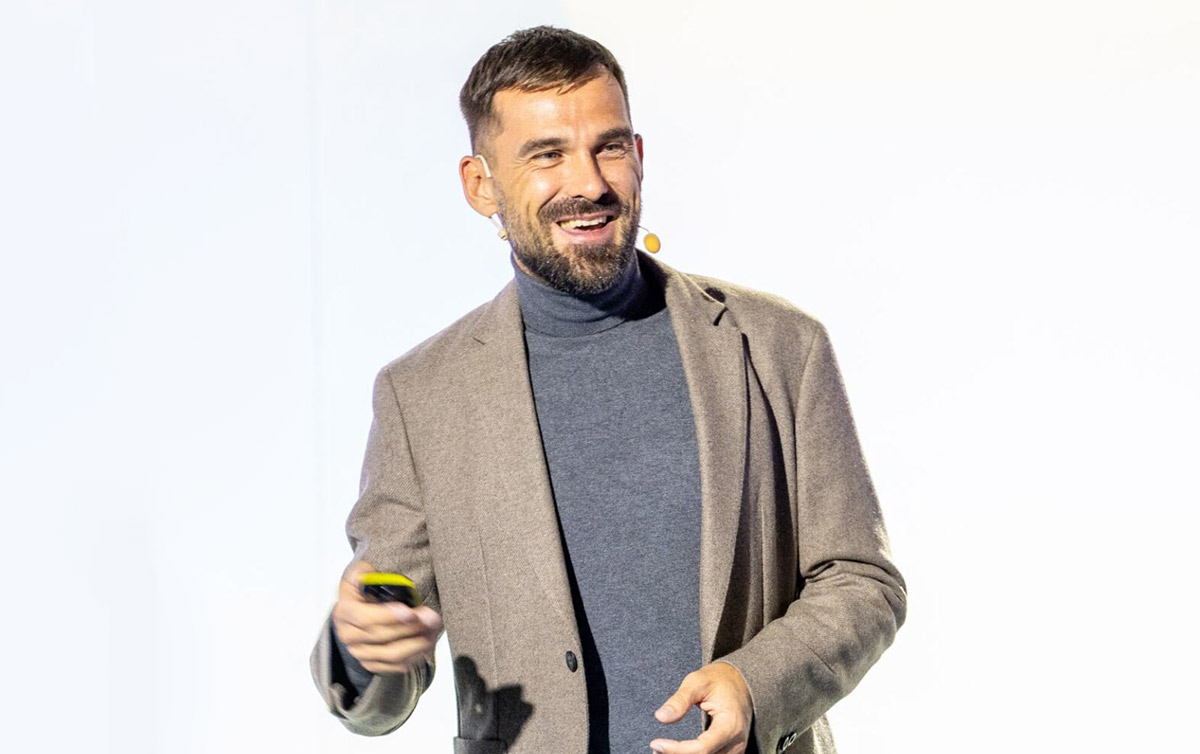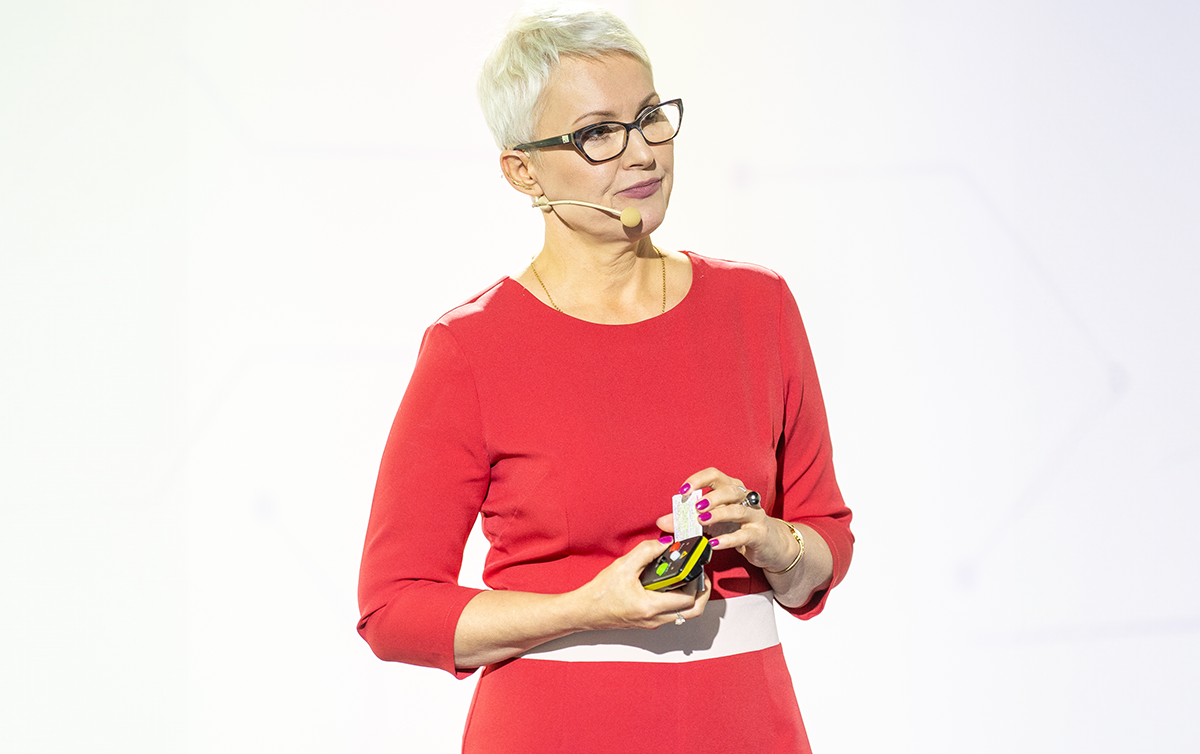Healthy nutrition is one of the key elements of wellbeing. It has an impact on brain fitness and mood. So what are the best food choices at work? What foods contribute to staying effective and creative? And what foods are best avoided?
Unhealthy snacks are readily available in the workplace
In the study “Nutritional habits of working Poles 2022”, carried out by Dailyfruits and the Nofer Institute of Occupational Medicine [1], as many as 49% of employees admitted that it was easier for them to eat something sweet – a cookie or a candy bar – than a wholesome meal during their working hours. 46% reported that they made unhealthy dietary choices because of heavy workloads and responsibilities. These results are concerning, as mindful eating practices, along with sufficient sleep, are among the simplest ways to enhance mood and improve cognitive function.
Sandwiches instead of pastries
While many people may crave a candy bar or a fresh pastry during moments of stress and fatigue, these shouldn’t be the go-to products for employees who feel hungry or emotionally exhausted. Excessive sugar consumption has been linked to a number of adverse health effects, including those related to mental health. Research shows that excessive sugar intake is linked to depressive symptoms, reduced dopamine levels, or impaired synthesis of serotonin [3].
Admittedly, the brain prefers sugars (carbohydrates) as its primary ‘fuel’ but the manner in which they are delivered is crucial. To keep your brain in good shape, you should give priority to sources of complex carbohydrates and avoid simple carbohydrates that lead to fluctuations in blood glucose levels. Glucose spikes and drops interfere with the transmission of signals in the nervous system. As a result, excessive sugar consumption is one of the causes of the phenomenon known as brain fog. It manifests as problems with concentration, focus, and sustaining attention. Consuming sweets, pastries, and sugary drinks during work hours directly affects the efficiency of task performance, leading to a reduction in productivity. So instead of indulging in pastries, opt for a sandwich made of whole-grain bread, with vegetables and a source of protein. A good substitute for sweet drinks is, for example, kombucha.
Kefir to boost the gut
Sugar also negatively affects the gut microbiota. And the gut microbiome has a huge impact on mood! There is a growing consensus that the gut is like the second brain, contributing to the wellbeing of the whole body. Substances produced in the intestines by the resident microbes have the potential to enter the bloodstream and impact various body parts, including the nervous system. Gut bacteria, for example, can produce oxytocin, a happy hormone that regulates the nervous system and suppresses stress reactions.
Importantly, the gut microbiota must be diverse. What are the best foods to feed your gut microbiome? Vegetables, fruit, whole-grain products, pickles, and fermented products. They help maintain a positive mood, support good mental health, and have a beneficial impact on the brain [2]. Many of these snacks, like kefir, can be conveniently consumed during a work break.
Brain-friendly diet
To ensure proper brain function, you also need healthy fats, especially omega-3 fatty acids. An invaluable source of these acids can be found in nuts, which are also a convenient and almost nutritionally perfect snack option at work. Walnuts, peanuts, cashews... all of them provide excellent support during periods of intense mental effort and prolonged concentration, and when you need a boost in creativity.
What other foods are healthy snacks for work? Definitely fruit, especially berries, which are rich in polyphenols (known for their antioxidant activity) and have a low glycemic index. Dark chocolate and cocoa are other good choices. They are rich in polyphenols, and also contain magnesium. And why are antioxidants so important for the brain-friendly diet? Because free radicals can harm neurons, which are fundamental building blocks of the brain and nervous system. Aside from berries, other sources of antioxidants include vegetables, spices, as well as nuts, seeds, and grains.
Surprisingly, however, Poles get the most antioxidants from... coffee and tea. These beverages contribute to over 50% of the daily antioxidant intake in the diet of Poles [4]. A particularly rich source of antioxidants is matcha, a type of green tea popular in Japan. One cup contains 10 times more antioxidants than regular green tea [5].
If your company has a tradition of ‘fruit days’, it would be a great idea to compose the boxes with fruits that are recognized for their ‘brain-boosting’ properties. In the summer season, good choices include blueberries, bilberries, raspberries, currants, and strawberries. In autumn and winter, recommended fruit options encompass dark grapes, pomegranates, figs, kiwi, and citrus fruit.
Tailored approach to the diet of employees
Keep in mind that diet is an individual issue, and it should be tailored to the needs of each and every person, taking into account their health status and body requirements. What are the ways to achieve this goal? Check out the helpful tools available on the MultiLife platform. The MultiLife Diet section and app allow you to create your own diet plans or choose from 16 personalized diets prepared under the guidance of nutritionists. Users can also take advantage of the Health and Quality of Life program providing access to content created in collaboration with leading experts – a wealth of articles, courses, and webinars where users are free to ask questions.
And if you want to know more about which foods are suitable for you, the MultiLife package gives you access to as many as four free consultations with a nutritionist per month! Each consultation in the form of a video call or chat lasts about 30 minutes – and at the end you receive personalized material developed by an expert. For those looking to address the emotional aspect of nutrition, MultiLife offers the opportunity to schedule a consultation with a psychologist. You can read more about the nutritional tips from MultiLife here.
Eating healthy is not a one-size-fits-all concept, and the definition of a healthy diet will vary depending on the individual for whom it is designed. Certainly, a person’s health status and medical check-up results are key factors, but equally important is their lifestyle, including the time available for meal preparation and individual taste preferences.
Creativity and integration
Food is a key component of a healthy lifestyle. In addition, good food choices can significantly affect the atmosphere in the workplace, contributing to the good mood and positive attitude of staff. Providing employees with access to snacks, juices, vegetables and fruits with health- and brain-boosting benefits to support them during intense work periods is just as important as creating a space where they can comfortably, together with their colleagues, have their lunch, which is essential for staying focused and productive throughout the day.
Equally crucial is providing offices with alternatives to highly processed snacks and sweets. What are the recommended substitutes? For example, sugar-free protein-rich bars with nuts and dried fruits, or snacks based on whole-grain cereals. Over the years, the market for healthy snacks has consistently grown, offering a diverse range of options for selecting snacks for the team. For inspiration, you can also check out the cookbooks in the Legimi app. “The MIND diet. The Way to Live Long,” “Diet for Mental Health,” “Healthy Gut Diet,” and “Diet for Business People” are just some of the options you’ll find in Legimi as part of your MultiLife package.
Throughout history, food has been a unifying force, bringing people together for shared regeneration and supporting a creative exchange of ideas. It’s also an essential part of the working day that no one should forgo.
References:
[1] Żywieniowe nawyki pracujących Polaków 2022, dostęp.
[2] Total sugar intake is associated with higher prevalence of depressive symptoms in obese adults: https://www.ncbi.nlm.nih.gov/pmc/articles/PMC9880186/; The depressogenic potential of added dietary sugars: https://pubmed.ncbi.nlm.nih.gov/31634771/
[3] Fermented foods, microbiota, and mental health: ancient practice meets nutritional psychiatry: https://www.ncbi.nlm.nih.gov/pmc/articles/PMC3904694/
[4] Zujko M. E., Waśkiewicz A., Drygas W., Cicha-Mikołajczyk A., Zujko K., Szcześniewska D., Kozakiewicz K., Witkowska A. M., Dietary Habits and Dietary Antioxidant Intake Are Related to Socioeconomic Status in Polish Adults: A Nationwide Study, Nutrients, 2020 Feb 18;12(2):518. doi: 10.3390/nu12020518. PMID: 32085545; PMCID: PMC7071315.
[5] Jakubczyk K., Kochman J., Kwiatkowska A., Kałduńska J., Dec K., Kawczuga D., Janda K., Antioxidant Properties and Nutritional Composition of Matcha Green Tea, Foods. 2020 Apr 12;9(4):483. doi: 10.3390/foods9040483. PMID: 32290537; PMCID: PMC7231151.





















